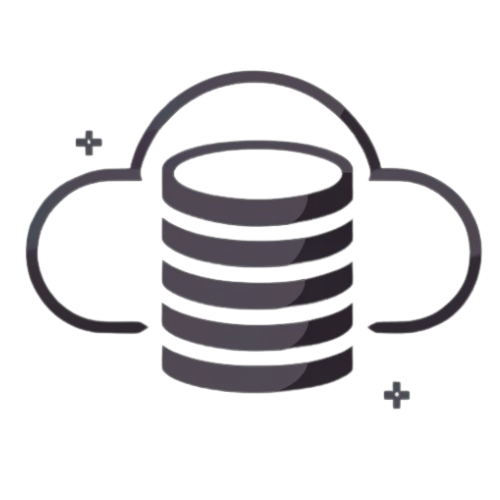Introduction
As businesses increasingly move to the cloud, choosing the right provider has become a critical decision. Among the leading cloud service providers—AWS, Azure, and Google Cloud—price plays a significant role in determining which platform aligns with your budget and requirements. In this AWS Azure Google price comparison, we’ll break down the core pricing elements like compute, storage, and networking costs across these providers to help you make an informed decision.
With cloud pricing models being notoriously complex, we’ve simplified the comparison to focus on typical workloads. You’ll also find recommendations to help you optimize costs and links to resources like gcloud-compute.com for more in-depth Google Cloud pricing analysis.
Why Compare AWS, Azure, and Google Cloud Pricing?
When choosing a cloud platform, pricing can often be a deciding factor, but it’s not just about picking the cheapest option. Different providers have varying billing structures, discounts, and free-tier offerings. For instance:
- AWS charges per-second for its compute services and has a pay-as-you-go model with numerous tiers.
- Azure is known for its hybrid compatibility, offering discounts for existing on-premise Microsoft customers.
- Google Cloud emphasizes simplicity and offers sustained-use discounts that automatically apply for long-running workloads.
Given these differences, a price comparison helps uncover which platform offers the best value for specific workloads.
Core Pricing Comparison
The table below breaks down pricing for three primary cloud services—compute, storage, and networking. These services represent the majority of cloud costs for businesses:
| Service Type | AWS (Approx.) | Azure (Approx.) | Google Cloud (Approx.) | Average Monthly Cost |
|---|---|---|---|---|
| Compute (Basic VM) | $25 – $30/month | $20 – $28/month | $20 – $26/month | ~$25/month |
| Block Storage (per GB) | $0.10 – $0.12 | $0.08 – $0.11 | $0.07 – $0.10 | ~$0.09/GB |
| Networking (Data Out) | $0.09/GB | $0.08/GB | $0.08/GB | ~$0.08/GB |
Breaking Down Each Category
- Compute
Compute resources power your applications and workloads. AWS often charges a premium for its wide range of instance types, but Azure and Google Cloud offer competitive alternatives. For example:
- AWS EC2 (t2.micro): $25/month for a basic instance.
- Azure B-Series VM: $22/month for similar performance.
- Google Cloud e2-standard: $21/month, with sustained-use discounts lowering costs further for extended use.
- Storage
Cloud storage costs can quickly add up for data-heavy workloads. Google Cloud’s pricing, starting at $0.07/GB, is often the most affordable for block storage. AWS and Azure follow closely, but Google Cloud edges ahead with more transparent pricing and fewer hidden fees. - Networking
Networking costs vary based on data egress volumes. For standard workloads, all three providers hover around $0.08-$0.09 per GB. However, additional costs for inter-region data transfer can increase total costs significantly, especially for AWS.
Additional Cost Factors
While the table above gives a general idea of pricing, several additional factors can impact your cloud expenses:
- Free Tiers and Trials
- AWS offers 12 months of free-tier access for certain services like EC2 and S3, ideal for startups or small workloads.
- Azure provides $200 in credits for new users and includes several free services for 12 months.
- Google Cloud offers $300 in credits and always-free services like 5 GB of Cloud Storage and 1 f1-micro instance per month.
- Discount Programs
- AWS Savings Plans: Up to 72% off with upfront commitments.
- Azure Hybrid Benefit: Leverages existing on-premise licenses for discounts.
- Google Cloud Sustained-Use Discounts: Automatic savings for running instances consistently.
- Hidden Costs
Beware of costs not immediately obvious, such as data ingress/egress fees, inter-region transfer fees, and API call charges. AWS is often criticized for its complex billing structure, while Google Cloud earns praise for its transparency.
Which Provider is Best for Your Needs?
The answer depends on your priorities. Here’s a quick guide:
- Choose AWS if you require the largest ecosystem of services, extensive global availability, and third-party integrations. It’s ideal for enterprises with complex architectures and no issue with higher costs.
- Choose Azure if you’re already in the Microsoft ecosystem and need seamless hybrid cloud options or Windows integration.
- Choose Google Cloud if you value simplicity, transparent pricing, and cost-effective compute and storage options. It’s particularly suitable for startups and analytics-heavy workloads.
Recommendations for Reducing Cloud Costs
- Understand Your Workload
Evaluate whether your workloads require 24/7 uptime or if they can leverage autoscaling and reserved instances to save money. - Leverage Cost Management Tools
Use tools like AWS Cost Explorer, Azure Cost Management, or Google Cloud Pricing Calculator to monitor and estimate your expenses accurately. - Start Small
If you’re unsure which provider to choose, take advantage of free-tier offerings and trials. Google Cloud’s $300 credit is a good starting point—explore more at gcloud-compute.com.
Conclusion
In this aws azure google cloud price comparison, we’ve highlighted the core pricing differences for compute, storage, and networking across the top providers. While AWS dominates in features and market share, Azure and Google Cloud provide compelling alternatives with competitive pricing and flexible plans.
The best choice depends on your specific workload, but for transparent pricing and ease of use, Google Cloud often stands out. Explore the detailed breakdowns and pricing tools linked here to ensure your decision aligns with your business goals and budget.
Check out Choosing the Right BaaS for Your Web App


Leave a Reply